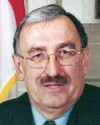Madam Speaker, I am pleased that today the House starts third reading debate on Bill C-31, an act to amend the Pension Act and the Royal Canadian Mounted Police Superannuation Act.
The fast turnaround time from its introduction on April 10 and the speed with which the Standing Committee on National Defence and Veterans Affairs gave it unanimous approval on May 8 clearly reflects how strongly we all feel for the members of our Canadian Forces and the RCMP.
Thus, when they are sent to areas of operations of elevated risk, all of us are one in the conviction that they should have the most comprehensive coverage and the speediest access possible to disability pension and also health benefits. That is exactly what Bill C-31 accomplishes. Let me briefly recap the highlights of the bill.
For decades now, Canadian service personnel have served abroad in areas of elevated risk designated as special duty areas, or SDAs, as part of United Nations peacekeeping activities for which Canada has become renowned. Quite rightly, they receive disability protection 24 hours a day, 7 days a week when they serve in these designated areas, but the administrative process to officially designate such an area is unduly lengthy and can take up to several months.
The bill before us today will help relieve the anxiety of our service personnel and their families by speeding up the process.
An SDA can quickly be designated by the Minister of National Defence, or the Solicitor General in the case of the RCMP, in consultation with the Minister of Veterans Affairs, and thereby give peace of mind to them before they are sent out for deployment. In fact, the bill extends coverage to include travel to and from special designated areas. Simply speeding up the process does not help those who are similarly at elevated risk while serving inside Canada or in assignments that cannot be geographically described as falling within a special duty area.
The bill now creates a new service category called special duty operation. This new designation recognizes that the face of war and the other challenges to peace and security have undergone tremendous change. Geography no longer offers non-combatant nations a cocoon of safety. Terrorism, in all its forms and disguises, presents a real and a present danger. We may never know where or in what form terrorism may strike next.
It is to this less easily definable battlefield that Canada sends out her men and women in uniform to protect us. Often the enemy is hard to identify, the lines of conflict are not clearly known and the nature of danger is difficult to determine. The new SDO designation takes into account the fluidity of such operations abroad and within our country. These operations are just as hazardous as special duty areas.
It is important to emphasize that special duty operations can encompass situations within our own borders. Think of the devastating floods and the ice storms we have experienced in recent times in Canada, or of the dangers of search and rescue operations. They expose our uniformed citizens to greater than usual danger.
Just as with special designated areas, this piece of legislation also provides RCMP personnel who serve in special designated operations with the same degree of coverage as their military counterparts.
A large spectrum of military operations could be covered by an SDA or an SDO designation. They include armed conflicts in missions conducted under the auspices of the United Nations and NATO and within coalitions of like-minded countries. Domestically, operations authorized under the Emergencies Act or the National Defence Act could also trigger an SDO designation covering such eventualities as disaster relief operations and in-Canada anti-terrorism service.
The spectrum of RCMP operations that could be similarly designated runs a parallel but not necessarily identical track. These operations could include police service within armed conflict situations, again under the auspices of the UN operations abroad, where the officers would be exposed to elevated levels of risk over a specific period of time. These situations might well include activities aimed at re-establishing social order, rebuilding social institutions and offering police training and services to wartorn nations trying to re-establish civil order.
The bill allows for the provision of the best coverage possible for members of the Canadian Forces and RCMP sent to areas of operations of elevated risk, and their families. A grateful and caring nation takes it upon herself to provide this as a duty of pride. I thank all my colleagues in the House for their unanimous support for this bill and ask members to give it swift passage today.

